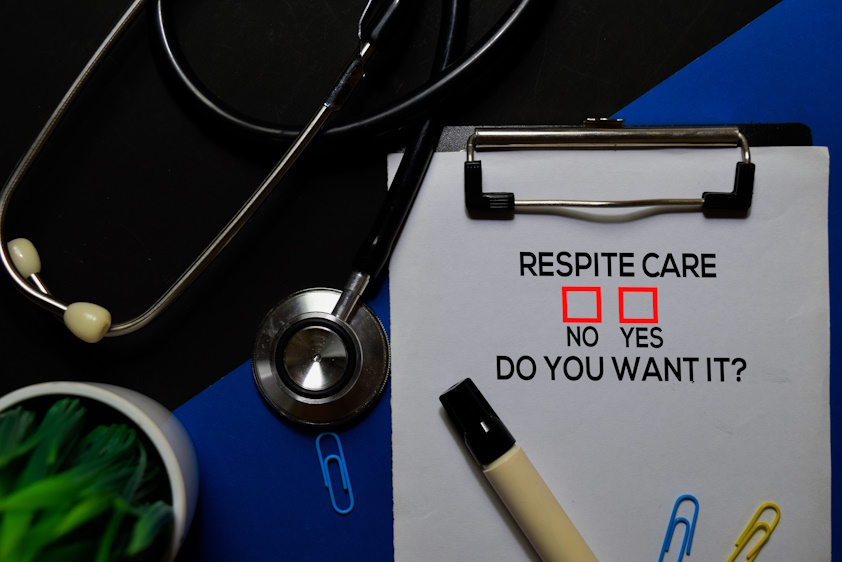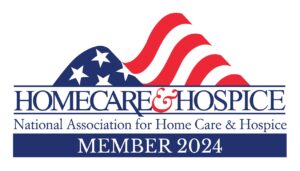How Can Private Duty Caregivers Help You and Your Family?
As a family caregiver, you’ve likely experienced many challenges. Caring for someone full- or part-time can be emotionally and physically draining. Caregiving often adds monumental responsibilities to your already-full plate. Playing the role of a family caregiver is also financially stressful, as many caregivers need to balance their own careers with providing care.
As a result, you might feel conflicted about asking for help. You may not know where to turn. What’s more, you may also be experiencing guilt because you want to do everything you can for your loved one and feel as though you’re falling short
Fortunately, private duty caregiver services, including respite care, are available to solve your challenges. Respite care allows you to hit pause on caregiving, so you can resume other responsibilities or get a much-needed break. When you sign up for respite care, a private duty home caregiver takes care of your loved one’s needs for you, including help with tasks of daily living, personal grooming, companionship, meal preparation, basic cleaning, and more. Your loved one can receive care in their home or wherever they live, for a minimum of two hours per visit up to round-the-clock care.
Typical Signs that You Need Respite Care
There are five common reasons that families decide that they need help caring for their loved one. If you identify with any of these experiences, it’s likely that you may benefit from private duty caregiver services for respite care.
- You need to return to work full-time. If you’ve already used vacation days, and you’ve relied upon the Family Medical Leave ACT (FMLA) to hold your job while caregiving, you may not have someone available to take care of your loved one during work hours.
- Taking care of yourself has fallen by the wayside. Many family caregivers lose sight of their own health, and at some point realize that their personal wellbeing has declined because they’ve given so much of themselves.
- You feel anger and frustration with your loved one or other family members that haven’t yet taken on the role of caregiver. These emotions are completely normal, and you shouldn’t feel guilty for feeling this way. It’s natural to experience a full range of emotions while dedicating yourself to caring for a loved one. However, it may be time to get a break, so you can return with a more balanced state of mind.
- You’re missing out on responsibilities and activities outside of caregiving. Caregiving can lead you to cancel or postpone appointments, social events, and opportunities that you would otherwise leapt at. You may also realize you’re neglecting other people in your family who depend on you.
- You just want to confess to someone, “I need a break.” If it feels like it would be a relief to just exhale and admit that you need help, you likely need it. You don’t want to keep your emotions inside, as you’ll only continue feeling resentful or angry at your loved one and other family members. These feelings aren’t helpful for your own wellbeing, either.
What Respite Care Can Do for Your Family
Although your loved one may be receiving healthcare in or out of the home, family caregivers like you understand there are many aspects to your loved one’s care that need to be addressed throughout the day and night.
As a family caregiver, you’re likely doing one, some, or all of these tasks:
- Meal planning and preparation
- Housekeeping
- Helping with bathing, personal care, and toileting
- Providing companionship
- Arranging transportation for appointments and outings
- And much more
When you decide to get respite care, a private duty home caregiver will take over these responsibilities in your absence, to ensure your loved one has everything they need to stay as healthy as possible.
You get to choose when you need your private duty caregiver. When you create the schedule, you can take a couple of hours off to handle other responsibilities, or multiple days or weeks in a row so you can take a vacation.
An experienced team that offers caregiver services will work with you on the best course of action for your loved one’s care. Respite care is not usually covered by medical insurance, but you may be able to receive it through agency-directed in-home Medicaid services or through self-pay at an hourly rate.
To learn more about how respite care can help you and your family, read “Does Respite Care Improve Your Relationship with Your Loved One?”






